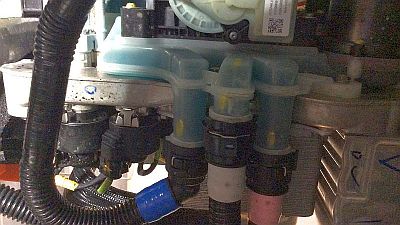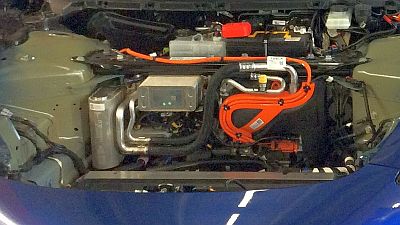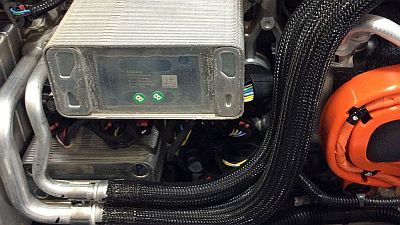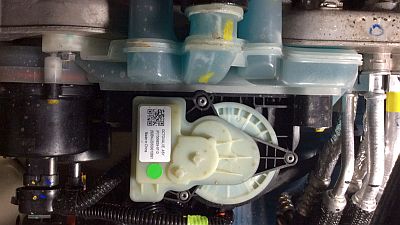Tesla electric vehicles have an Advanced Thermal Management System, in order to maintain within a pre-established temperature range all the components involved in the propulsion of the vehicle, as well as the passenger compartment, for comfort purposes.
These components are: The high-voltage battery, the propellant set(s) in versions with one motor or two motors made up of a traction motor, transmission and inverter, the DC/DC converter, the charger module (AC/DC ) and the vehicle’s computer (ICE – MCU – AP)
The objective of this system is to keep the components involved in the propulsion of the vehicle, its modules and the vehicle cabin within the pre-established temperature range for comfort purposes. This task is carried out by transferring or moving heat from a place where it is not necessary and counterproductive and reusing it in another necessary place, carrying out this thermal transfer process with the least possible energy expenditure.
Tesla’s current Thermal Management System is considered the most advanced in the world.
Tesla’s Thermal Management uses coolant to keep battery temperatures within an optimal operating range. The liquid is pumped through a network of pipes that surround the battery and is cooled or heated as needed to keep the temperature in the ideal range.
In addition, Tesla vehicles are also equipped with a heating and air conditioning system that can heat or cool the vehicle’s cabin, helping to maintain a comfortable temperature for passengers and reduce battery power consumption.
Tesla’s Thermal Management System also includes an intelligent charging system that automatically adjusts the charging rate based on battery temperature. If the battery is hot, the charging rate is reduced to prevent damage, while if the battery is cold, it is increased to speed up the charging process.
The most common symptoms that indicate problems with the Thermal Management System (among others) are:
- Alerts beginning with THC or VCFRONT or BMS on the screen.
- Burning smell or noise when turning on the air conditioning.
- Poor air conditioning performance.
- Intermittent operation of the air conditioning.
The services available for the Thermal Management System are:
- Verification of system performance.
- Repair of the glycol circulation system.
- Recharge and replacement of glycol.
- Replacement of parts of the system.
- Freon refrigerant system check.
|
|
 |
 |
|
Llamenos – Call Us +1 786 580 1941 |
TextUS +1 786 705 9030 |
Call US / Phone Office +1 (786) 293 1094 |
Alerts indicating a problem with the thermal management system:
If you have any of the following alerts on the screen, your Tesla is having a problem related to the thermal management system:
To identify the problem we must carry out an evaluation and prepare an EV-Intelligent Report.
These alerts start with THC and also with VCFRONT.
 |
 |
 |
 |
Thermal Management System Alert List:
THC_d0004
THC_d0005
THC_d0006
THC_u0002
THC_u0003
THC_u0005
THC_w0016
THC_w0042
THC_w0105
THC_w0237
THC_w0238
THC_w0160
THC_w0190
THC_w0242
THC_w0243
VCFRONT_a122
VCFRONT_a124
VCFRONT_a125
VCFRONT_a126
VCFRONT_a135
VCFRONT_a136
VCFRONT_a137
VCFRONT_a138
VCFRONT_a139
VCFRONT_a140
VCFRONT_a141
VCFRONT_a142
VCFRONT_a143
VCFRONT_a144
VCFRONT_a145
VCFRONT_a148
VCFRONT_a150
VCFRONT_a151
VCFRONT_a152
VCFRONT_a223
VCFRONT_a224
VCFRONT_a231
VCFRONT_a233
VCFRONT_a235
VCFRONT_a355
VCFRONT_a356
VCFRONT_a451
